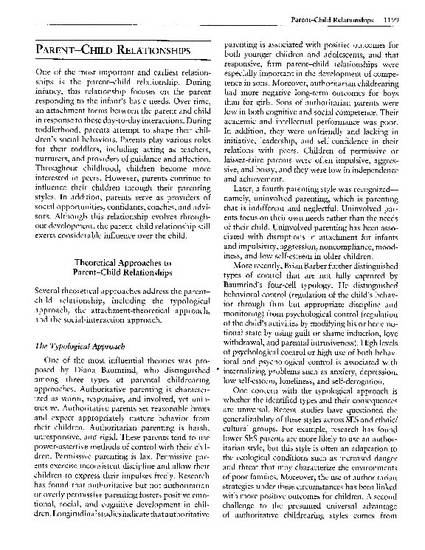
One of the most important and earliest relationships is the parent-child relationship. During infancy, this relationship focuses on the parent responding to the infant's basic needs. Over time, an attachment forms between the parent and child in response to the these day-to-day interactions. During toddlerhood, parents attempt to shape their children's social behaviors. Parents play various roles for their toddlers, including acting as teacher, nurturers, and providers of guidance and affection. Throughout childhood, children become more interested in peers. However, parents continue to influence their children through their parenting styles. In addition, parents serve as providers of social opportunities, confidants, coaches, and advisors. Although this relationship evolves throughout development, the parent-child relationship still exerts considerable influence over the child.
Available at: http://works.bepress.com/thomas-schofield/8/

This book chapter is from Encyclopedia of Human Relationships, 3(2009);1199-1203. DOI:10.4135/9781412958479. Posted with permission.